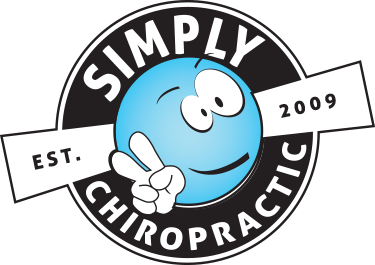A study from the U.S. Department of Health and Human Services, NIH (National Institutes of Health):
Low Risk of Stroke After Chiropractic Spinal Manipulation in Older Patients With Neck Pain, Study Finds
An analysis of Medicare claims data from older Americans who sought care for neck pain from chiropractors suggests that cervical spine manipulation is unlikely to cause stroke. This is the first population-based study in the United States to examine the risk of stroke after spinal manipulation and the first such study on older adults. The study, conducted by researchers from Dartmouth College and the Southern California University of Health Sciences, was supported by the National Center for Complementary and Integrative Health. It was published in the Journal of Manipulative and Physiological Therapeutics.The NIH report, first published January 15, and updated on March 3, 2015
The National Institutes of Health (NIH) has issued a report stating that chiropractic care is unlikely to cause stroke as some opponents of chiropractic care have asserted.
, starts by stating, "An analysis of Medicare claims data from older Americans who sought care for neck pain from chiropractors suggests that cervical spine manipulation is unlikely to cause stroke." This newest study adds to the growing body of scientific evidence that shows that chiropractic care is safe and does not increase the risk of stroke. The NIH report further noted, "This is the first population-based study in the United States to examine the risk of stroke after spinal manipulation and the first such study on older adults."
Researchers reviewed 1.1 million Medicare claims from 2006 through 2008. Cases included in the data were all Medicare patients ages 66 to 99 who had a diagnosis of neck pain and who had visited either a chiropractor or a medical doctor for that condition. The researchers then checked the records to see how many of these patients had suffered a stroke within 7 days or within 30 days of their visit to either provider.
The results of this study showed that the rate of vertebrobasilar stroke, the type of stoke some had tried to suggest was associated with chiropractic adjustments, is extremely rare. The researchers noted that when reviewing the data for all types of strokes, there was no statistical risk shown when comparing Medicare patients who went to medical doctors or chiropractors for the complaint of neck pain.
In their conclusion, the researchers noted how small the risk of stroke was for seniors under chiropractic care and summed up the results by saying, "Chiropractic cervical spine manipulation is unlikely to cause stroke in patients aged 66 to 99 years with neck pain."
Dr. Michael McLean, a practicing chiropractor and president of the International Chiropractors Association commented, "For many years, there have been opponents to chiropractic who have tried to falsely claim that chiropractic is dangerous. The facts show that chiropractic is the safest form of healthcare available." Dr. McLean further noted, "While no procedure in healthcare is 100 percent risk free, this well-done large study should finally put to rest any speculation that chiropractic care creates an increased risk for stroke."
Chiropractic Adjustments Safe According to Scientific Review
2013-10-14
A literature review published in the September 2013 issue of the International Journal of Clinical Practice and online at www.medscape.com by P. Tuchin examined 18 studies discussing what the researchers termed "spinal manipulative therapy" (SMT) and stroke to determine if SMT was a causative or associative factor.
There has been rumors of stroke following SMT. Reports not based upon any statistical evidence vary from 1 case in every 400,000 to 1 in 5.6 million. The prejudicial tendencies by some in the medical community toward chiropractic have created controversial views of chiropractic SMT having a higher risk of stroke than other types of SMT. This literature review attempted to cut through the hype and, "…assess any misconceptions or distortion of the results of studies on chiropractic and stroke."
This review noted that sixty percent of strokes occur due to an abnormal amount of lipids (cholesterol and/or fat) in the blood. Smoking, hypertension, obesity, cardiovascular disease, types 1 & 2 diabetes, atrial fibrillation, migraines, heavy drinking, infections, contraceptives, sleep apnea, illicit drug use, and other factors also put a person at higher risk for stroke.
Chiropractic adjustments or SMTs are not listed in the scientific literature as a major factor in stroke. The researcher Tuchin explained, "The evidence for causality of vertebral artery dissection from chiropractic is weak."
Tuchin examined the studies that suggested that chiropractic SMT caused stroke in patient cases, looking for other factors and explanations that may have been the real causative factor. To test for a causal relationship, nine specific criteria were used. The scientific criteria included: strength of evidence, consistency, specificity, temporality, biological gradient or dose-response relationship, plausibility, other explanations, experimental confirmation, and coherence.
Strength criteria findings showed that the number of cases examined in each study were too small not to question the results. Dose-response relationship criteria showed flaws in the 18 studies of chiropractic SMT and stroke because the studies actually examined cases where SMT was not done by chiropractors but rather by other professions like massage therapists and MDs. Every criteria examined by Tuchin revealed serious flaws and inconsistencies in the studies and their results.
After examining the 18 studies for the criteria, Tuchin states, "There is lack of compelling evidence that SMT is causally associated with stroke. Physical triggers, including SMT, can serve as plausible final link between the underlying disease and stroke."
Tuchin concludes by stating, "The quality of evidence suggesting causation between chiropractic and VAD is mostly weak. Therefore, causality between chiropractic and vascular accidents has not been determined."

